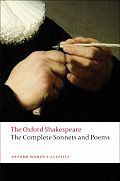It’s a holiday for James Joyce fans, a holiday known as Bloomsday. Joyce’s seminal 1922 novel Ulysses spans a single summer day in Dublin (1904), and now we know every 16th of June as Bloomsday, so named after the novel’s protagonist Leopold Bloom. Typical Bloomsday activities include Ulysses-themed pub crawls, dramatizations, and readings. Some committed fans even hold marathon readings of the entire book.
I heard that Steve Cole is taking this tradition to Twitter, and inspired by that, we’re going to celebrate Bloomsday on Twitter as well. Oxford University Press has published* a facsimile of the original 1922 text and you have the chance to win a copy. Just tweet
and you’ll be automatically entered to win.
In the meantime, I encourage you to read this short excerpt from Jeri Johnson’s introduction to the Oxford World’s Classics edition of Ulysses, in which she talks about the novel’s formidable reputation and the intimidation new readers sometimes feel.
*This Oxford World’s Classics edition is currently available in the UK and will be published in the US this summer.

National Poetry Month, is nearing its end, and the royal wedding is just around the corner, so let’s write poems about it. I’ve made some suggestions below, but all forms are welcome. (If you really want to win me over, I suggest attempting my favorite poetic form, the sestina.) Send your poem care of [email protected] and I’ll post what I can tomorrow. (Keep it clean, please. Humor, satire and effusive excitement are welcome, insults are not.)
Additionally, our Twitter followers are eligible to win one of the below Oxford World’s Classics. To enter, tweet:
Take @OUPAcademic’s #royalweddingpoetrychallenge http://oxford.ly/msrv0S
Entries will be accepted all weekend. Winners will be contacted via DM.





* * * * *
ghazal (ghasel; gazal; ghazel) A short lyric poem written in couplets using a single rhyme (aa, ba, ca, da, etc.), sometimes mentioning the poet’s name in the last couplet. The ghazal is an important lyric form in Arabic, Persian, Turkish, and Urdu poetry, often providing the basis for popular love songs. Its usual subject-matter is amatory, although it has been adapted for religious, political, and other uses. Goethe and other German poets of the early 19th century wrote some imitations of the Persian ghazal, and the form has been adopted by a number of modern American poets, notably Adrienne Rich.
cinquain [sang-kayn] A verse stanza of five lines, more commonly known as a quintain. Examples of such stanzas include the English limerick, the Japanese tanka, and the Spanish quintilla; others include the variant ballad stanza employed intermittently by S. T. Coleridge in his ‘The Rime of the Ancient Mariner’ ( 1798 ), and many more varieties with no name.
terza rima [ter-tsă ree-mă] A verse form consisting of a sequence of interlinked tercets rhyming aba bcb cdc ded, etc. Thus the second line of eac
There is a lot of mystery behind the Oxford English Dictionary, but I can tell you for sure that it is not compiled in a Gringotts-style castle, all the word slips hidden in secret stone wall compartments, with a team of bearded, vitamin D-deficient lexicographers hunched over great dusty volumes. Today, the OED team is releasing new batch of updates, so I thought I’d share some videos that shed light into the revision process.
Revisions and Potato Salad
Click here to view the embedded video.
Megalosaurus (and other scientific words)
Click here to view the embedded video.
But what are the updates?
Click here to view the embedded video.
Watch more videos on the OUPAcademic YouTube channel.








